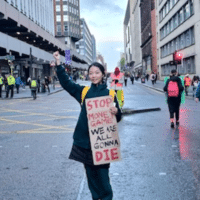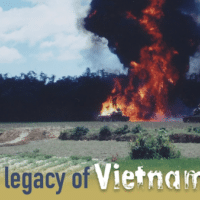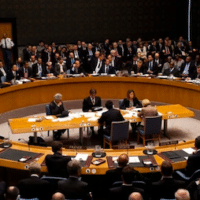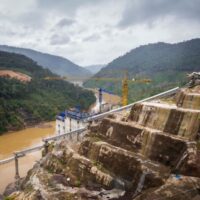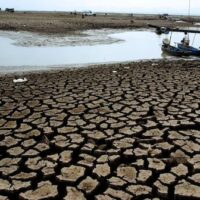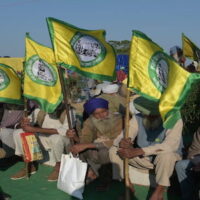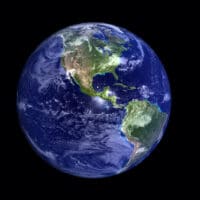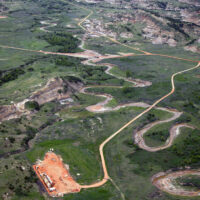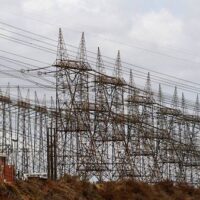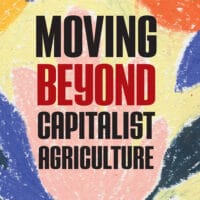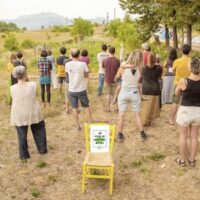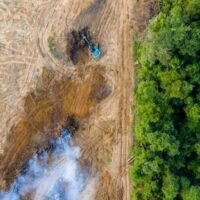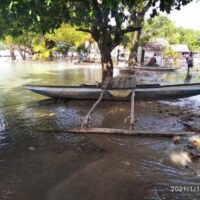-
Why are you asking us to compromise on our lives?
Nothing useful seemed to emerge from the United Nations Framework Convention on Climate Change (UNFCCC) at COP26 this week. The leaders of developed countries made tired speeches about their commitment to reversing the climate catastrophe.
-
Lasting environmental and health impacts of U.S. chemical warfare in Southeast Asia – 50 years on
The Vietnam War (1955-1975) is known to the Vietnamese as the “American War,” or the “War Against the Americans to Save the Nation.”
-
Mother Nature, Inc.
Wall Street investors have hit the jackpot. Soon they’ll be able to buy, own, and dictate The Commons, public lands, the world of Mother Nature.
-
COP26: Military pollution is the skeleton in the West’s climate closet
Leaders at the COP26 summit have no intention of tackling the growing environmental impacts caused by their ‘defence’ spending.
-
COP-out 26
Marxist economist Michael Roberts shares his take on the Glasgow climate talks—what is on and what is not on the agenda.
-
Richard Lewontin, dialectical materialism, the relationship between evolutionary biology and Marxism
Dialectical materialism combines two philosophical traditions: historical materialism formulated by Karl Marx and Friedrich Engels, and dialectics, an idealist philosophy formulated by German philosopher Georg Willhelm Friedrich Hegel.
-
Against Enclosure: The Commonwealth Men
How 16th century reformers fought privatization of land and capitalist agriculture.
-
Rhetoric, meet reality: how to green the Belt and Road Initiative
After much talk, concrete frameworks and guidelines are finally arriving, and the stage is set for China to improve its green credentials on the Belt and Road.
-
Time is running out for a new agricultural model for the global south
Agriculture—especially industrial agriculture requiring chemical inputs—is cause and victim of these changes. Cultivation patterns such as mono-cropping, with heavy reliance on groundwater and chemical inputs, have reduced the food sovereignty of poor countries and generated growing environmental problems.
-
India’s data harvest
New platforms and data analytics are helping big agribusiness take over Indian agriculture. Ordinary farmers are losing out, writes Bikrum Gill.
-
The United States is the greatest Scofflaw
But the United States government is not alone here. It has several close allies, such as Canada, which is the home to 60 per cent of the world’s mining companies. Canada’s great interest in what lies beneath the soil of the Americas allows it to treat those who live above that soil with the greatest disdain.
-
Robbing the Soil, 2: ‘Systematic theft of communal property’
“The expropriation of the mass of the people from the soil forms the basis of the capitalist mode of production.” (Karl Marx)
-
North Dakota gets fracked
When the big shutdown finally takes hold in the Bakken, the frackers will have gone and most wells abandoned, and people in the region will still have to deal with the illegal trash dumps, polluted streams, health problems, and other unfortunate effects of the boom.
-
Fish flown in after Yukon salmon plummet
It’s devastating. It’s scary. Because we don’t know what’s going on with this fish.’ – JOAQLIN ESTUS
-
Russia and Venezuela to implement energy security joint projects
Russia’s Rostec will provide “advanced technology” and train Venezuelan personnel to recover the country’s sanctions-hit power facilities.
-
Robbing the soil, 1: Commons and classes before capitalism
“All progress in capitalist agriculture is a progress in the art, not only of robbing the worker, but of robbing the soil.” (Karl Marx)
-
Moving Beyond Capitalist Agriculture: Could Agroecology Prevent Further Pandemics?
The current complex of COVID-induced crises fits hand-in-glove with the system’s “normal” operation. Stability has been the delusional realm of a small sliver of the Global North, awash in post-World War Two imperialism and the repeated reinvention (and re-imposition) of various plantation systems of cheap and racialized labor.
-
Sustainable food systems are possible outside corporate agriculture
The United Nations Food Systems Summit has become one of the most controversial events of this year due to corporate take over. Civil society activists came together during the pre-summit to register their protest.
-
Mending the metabolic rift: Marxism, nature and society
Karl Marx’s analysis of capitalism provides the key to understanding the environmental catastrophe we’re witnessing, and to gaining a clearer picture of what’s needed to repair our damaged relationship with the Earth.
-
Climate change and the Pacific Islands: ‘When the land disappears, we will all disappear’
Climate change is already leading to rising sea levels, threatening island and coastal communities and devastating food security and access to fresh water. Long-term drought and changes in weather patterns are causing hunger and destroying farming land.

